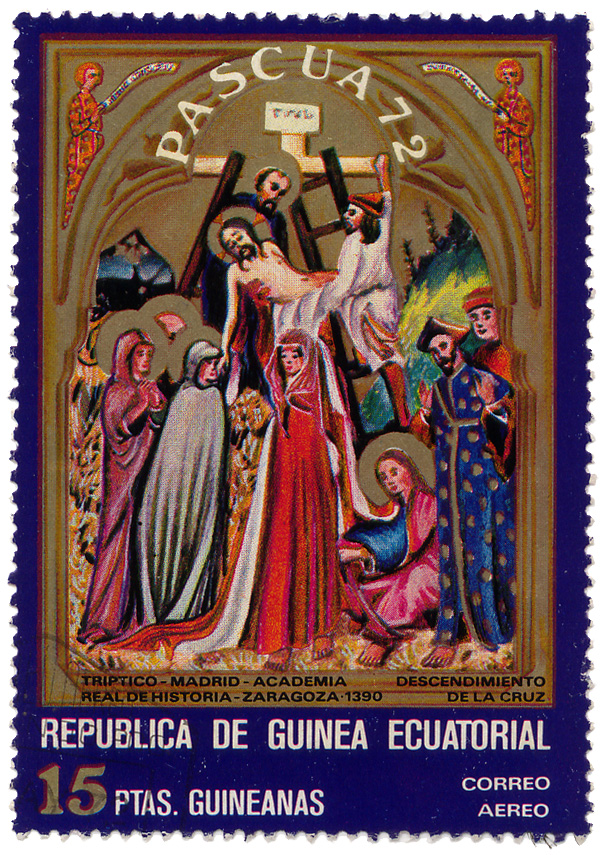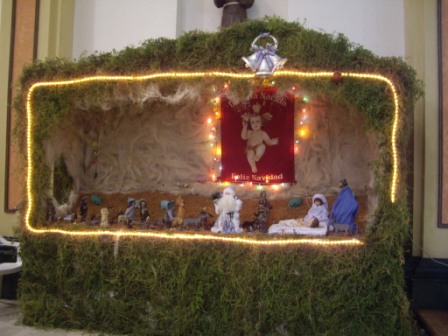January 1. New Years Day. Most people celebrate it like the rest of the world. The Ministry of Information, Culture,
and Tourism puts on a fabulous fireworks display. It’s free and broadcast throughout the country.
Varies. Good Friday / Easter. Good Friday goes by several names (Mourning Friday or Black
Friday); it represents the day Christians believe Jesus was crucified on the
cross. Most Christians will attend
a special Good Friday mass and spend the day in solemnity. Easter is considered the most important
holiday for Equatoguinean Christians. Since this is the day that Christians
celebrate Jesus being resurrected from the dead, many people spend the day (or
at least morning) in church services and visiting family and friends later.
May
1. Labour Day. Also called International Worker’s Day, this holiday is designed to
celebrate the worker and discuss labor issues. Both public and private businesses are closed on this
day.
May
25. Africa Day. This holiday was created in
1963 with the creation of the African Union. The African Union itself was
designed to bring all 53 member states together to deal with issues regarding
economic issues, crime and trafficking issues, and poverty that affects
everyone in the African community. It’s also designed to celebrate the spirit and vivacity of Africa. Celebrations vary, but it is celebrated
in both Africa and its Diaspora with games, music, food, and dances for everyone. Seminars and panel discussions are often held
during this time to discuss pressing affairs.
May 30. Corpus Christi. Corpus Christi is the Christian celebration of the Holy Eucharist,
or Holy Communion. Many
Equatoguinean Christians will attend a special mass on this day.
June 5. President’s Day. This is the birthday of President Teodoro Obiang Nguema Mbasogo.
In 1979, he led a successful coup d’état to oust his uncle, the first president
of the country. Large celebrations
are held in his honor, including lavish meals and cultural programs.
August 3. Armed Forces Day. This holiday commemorates the historic coup led by now President
Mbasogo. It also honors the
members of the country’s military (army, navy, and air force). Most often, this day includes military
parades and memorials to its veterans.
August 15. Constitution Day. The original constitution was drafted and accepted in 1982,
identifying the country as a one-party state. The president’s term is seven years, and the legislators’
terms are for a period of five years. However, in 1991, they added an important
referendum to the constitution making the country a multi-party state.
October 12. Independence Day. This day
commemorates Equatorial Guinea’s independence from Spain in 1968. They changed their name from Spanish
Guinea to Republic of New Guinea, and then again to Equatorial Guinea. One of the key events is the
president’s address, honoring all of the nation’s fallen soldiers. Military parades and cultural displays
of music, dance, and art are presented in towns and cities across the
country.
December 25. Christmas Day. Equatoguinean
Christians start shopping well in advance, like many other countries do. They decorate their homes for the
season in lights, ribbons, and balloons. Christmas Eve is a big night: people
attend a special mass, which includes a lot of singing that carries over long
after the service is over. People sing and dance their way to the early hours
of the morning. Christmas Day
itself is spent visiting family and friends to exchange gifts and share
meals. Traditional music and dance
is often incorporated into the holiday celebrations.
Up next: art and literature





Hard to read against background but wonderful information. Thank you. v
ReplyDelete